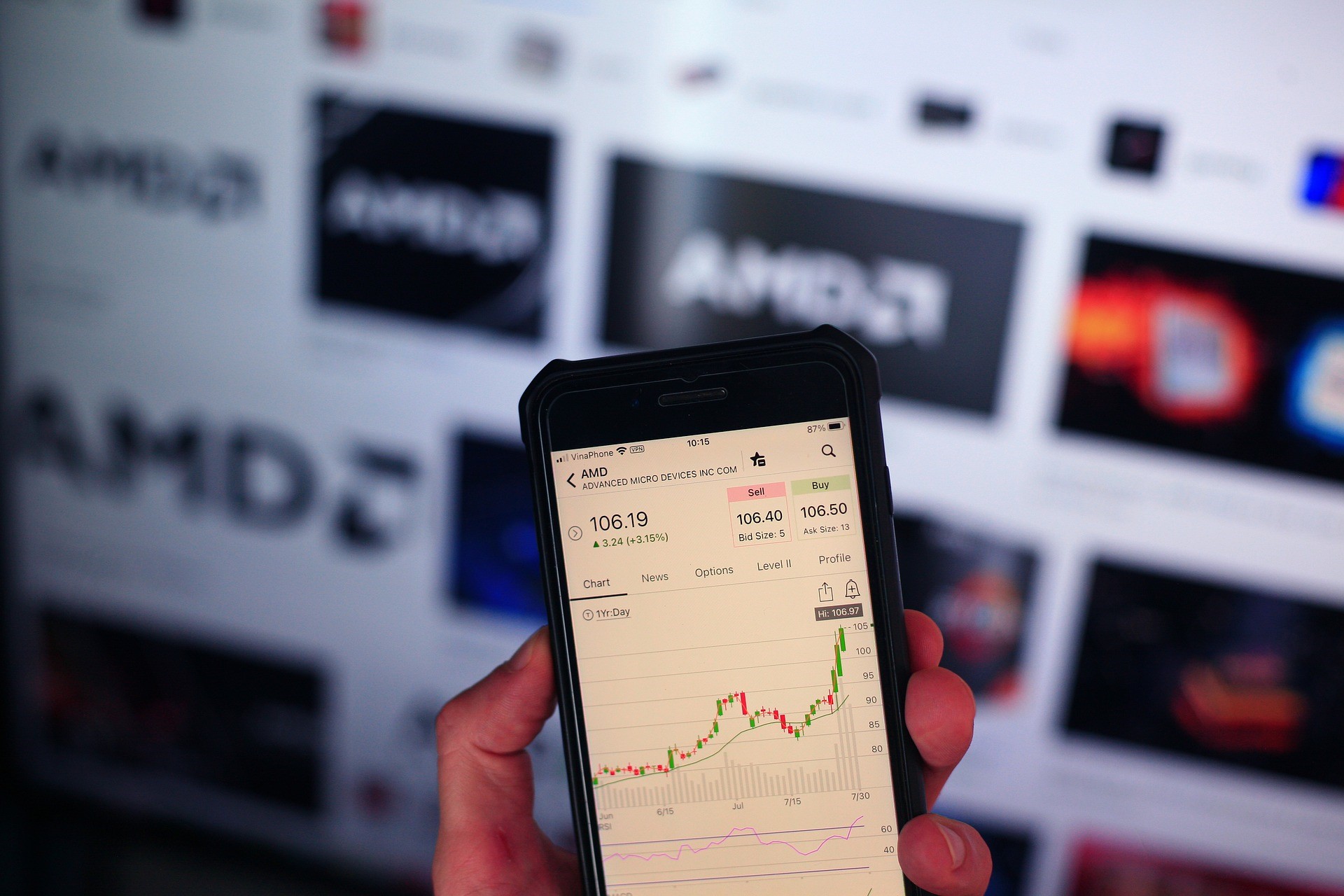By Aman Jain. Originally published at ValueWalk.

Experts and novice traders are standing with opposing opinions on the use of electronic investment advice platforms which have now started to dominate the market since its inception back in 2008.
While both sides of the aisle represent either strong support or lack thereof for the use of robo-advisors or an investing app to make algorithmic investment decisions, the recent explosion of new online users and daily subscribers has set predictions to be worth more than $1.2 trillion by 2024.
Q1 2022 hedge fund letters, conferences and more
As opposed to the traditional sense, where investors made use of financial brokers and investment experts, robo-advisors quickly climbed in popularity at the start of 2021, when a large cohort of Redditors managed to drive up the price of GameStop stocks by roughly 134% in one trading day.
The use of popular trading platforms such as Robinhood at the time saw millions of traders using the platform to purchase GameStop, and other related stocks in a flurry, driving up share prices and throwing the stock market a curveball no Wall Street investor or trader could’ve expected.
Perhaps the popularity of robo-advisors, which saw its peak back at the height of the coronavirus pandemic in 2020, when millions were forced to follow stay-at-home orders, and people were left feeling anxious and nervous about their financial road ahead.
Since then, popularity and monthly growth have been declining, with US account holders declining by 7.8% this year alone, and on a collision course to experience single digital growth by 2024.
With both a decrease in account holders, and at the same time seeing better improvements on platforms and growing market competitions, how will robo-advisors keep users engaged, and should traditional investors be concerned?
It’s More About Convenience
For the more than 290 million users across the world that make use of robo-advisors and similar investing apps, the simplicity and convenience thereof have left them interested. Robo-advisors, while making calculated and algorithmic investment strategies, have enabled more people to have access to the stock and investment market.
What this means is that users who register and subscribe to these platforms, even with minimal experience, now have virtual access to available stock market shares. This has enabled them to set up an investment portfolio and contribute as needed to help their portfolio grow over time.
While traditionally, investment on the stock market was a more sophisticated way to grow a retirement fund or financial portfolio, some younger and more tech-savvy traders use trading and investment apps as a way to earn some extra cash on the side.
There’s no real way of saying whether users are making use of these platforms for case-specific goals, even if it allows them the option to adjust their long-term savings goals.
Having better asset allocation, novice users have quick and direct access to their investments, and if any sudden changes had to occur on the market, the robo-advisor will adjust itself automatically to ensure that investment goals remain on track.
If you slowly step back, perhaps you start seeing a different picture that might be able to change your perspective somewhat. Robo-advisors have created an opportunity for convenient investment and trading, leaving machines and Artificial Intelligence to do the hard thinking and guessing work.
Instead of making use of a financial broker, or an investment advisor, people are ignoring the human element of the stock market, as machines can’t predict how people can impact the stock market.
Investors Value Human Advice
A counterargument that now somewhat solidifies the bearish support for the use of robo-advisors has recently been studied and documented by two Vanguard behavioral economists, Paulo Costa, Ph.D., and Jane Henshaw.
The researchers studied more than 1,500 US investors and found that roughly 93% of them will continue to make use of a human financial advisor. Furthermore, more than 88% of those who are currently making use of some sort of electronic or digital trading platform are willing or very willing to bring onboard a human financial advisor for future advice delivery.
Interestingly enough, from those who were surveyed, a majority of them who make use of human advisors have estimated that they are roughly $160,000 closer to achieving financial goals.
Human advice and participation when it comes to investments and trading stocks on the market reveals to not only contribute on an emotional human level but can play a vital role in the overall performance and peace of mind of investors.
The type of advice and the value thereof that investors receive from their financial advisor gives investors a better portfolio construction, attainable financial goals, and improved trust in the stock market.
Of course, we cannot deny the massive influence confirmation bias can have on the final results, as the majority of investors and traders have built a trustworthy relationship with their financial advisor, for some it may be a couple of years, for others it could be more than decades.
Risk Alert
Perhaps it shouldn’t go unsaid that there are several risks involved when it comes to using any type of robo-advisor app or platform. Some of these risks were recently pointed out by the Securities and Exchange Commission (SEC).
While the report found several issues regarding policies that were not included in the user’s terms and conditions with specific attention given to compliance programs, portfolio management, performance advertising, marketing, and the protection of user information.
These are among the most critical issues that were examined by the SEC, and while they found an additional amount of risks, some leading robo-advisory platforms have been advised to make immediate adjustments and changes, with a focus on reasonable restrictions and improved security measures.
But perhaps we shouldn’t forget that at the end of the day, robo-advisors are simply making use of historic market data, and current predictions – which is the same as traditional advisors, robo-advisors only make it a lot more simple and uniform.
What Are Traders Using?
While the industry is still somewhat in its infancy, with robo-advisor platforms and apps taking shape regardless of financial or economic background, research compiled by Deloitte found that there are currently more than 74 different robo-advisor platforms shaping the future of finance and investing.
Although these offer ample selection for intra-day and novice traders, which of these are ranked among the best according to recent findings.
It’s not easy to pinpoint exactly which will work the best for every investor, as each offers a host of different features and tools, but ultimately it boils down to what the final investment goal and strategy for each investor is.
Recent findings pinpoint to these as being the most popular robo-advisor applications currently being used around the world:
SoFi Automated Investment: One of the more desirable apps for beginners and entry-level traders who are keen to learn as they grow their portfolio.
Blooom: Considered one of the most effective robo-advisor apps for employer-sponsored 401(k) retirement plans, and offers an attractive analysis tool which many new investors find very useful.
Wealthfront: Investors who are looking to hedge tax-losses normally opt to make use of Wealthfront, as it offers practical tools and features for more experienced investors.
M1 Finance: Many bloggers and investment enthusiasts have claimed that M1 Finance is a suitable choice for someone who wants to get started with minimal initial investment fees.
While these digital trading advisors are now basically everywhere, and with a growing market, we cannot deny that the advancements these platforms have made in a short period have made it a lot easier for just about anyone to now have transparent access to the stock market.
In the end, these platforms create a challenging road ahead for not just financial advisors, but veteran investors as well. While it eliminates the human element from the investment journey, it does however prove to offer investment success.
For many investors, it boils down to having better control and say over how they want their portfolio to grow, and what type of asset allocation they want to include. There’s still a lot we need to understand and learn from how robo-advisors should work, and how they can better predict trading trends, not just for short-term financial goals, but for long-term technological prosperity.
Updated on
Sign up for ValueWalk’s free newsletter here.





